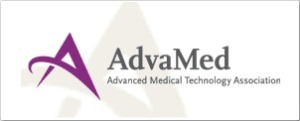El informe da buenas marcas a las regulaciones europeas del dispositivo
por
Brendon Nafziger, DOTmed News Associate Editor | January 28, 2011

An industry-funded report argues that the medical device regulations in Europe are as safe as in the United States, even though the European system is thought to be much faster.
The report, released Friday, comes as the U.S. Food and Drug Administration and European regulators both mull profound changes to the way medical devices get brought to market.
According to the report, prepared by The Boston Consulting Group for AdvaMed, a U.S. device lobby, the average number of serious recalls are about 21 per year in both Europe and America.
"We found the same number of recalls, even though the belief is there are more devices out in Europe," Simon Goodall, Boston's partner and managing director, told reporters in a call.
Although AdvaMed did not present hard data, it said devices were often approved in Europe "years" before they reached the United States, partly because of the increasingly tough U.S. regulatory stance.
But safety advocates disputed the findings of the report, arguing that it was "highly biased." The advocates also said the study was weakened by flawed assumptions, and that much of its methodology remains obscure.
"[S]uch a report would never successfully pass through a rigorous peer-review process," Dr. Sidney Wolfe and Dr. Michael Carome, who head the health research division of Public Citizen, a public watchdog group founded by Ralph Nader, said in a statement e-mailed to DOTmed News.
Crossing the pond
Part of the trouble in seeing whether the European system is as safe as America's is the two systems are strikingly different.
In the United States, approval and regulation of devices -- including the issuing of recalls and safety alerts -- all pass through the FDA, a federal agency. But in the European Union, the approvals are handled by 74 for-profit companies called Notified Bodies, which are certified by member countries, AdvaMed said.
Thus, for Europe, unlike the United States, there's no central database to find recall alerts. Instead, Field Safety Notices, roughly, though not always, the European equivalent of a recall notice, are tacked up on the public websites of many countries. Countries also have to file major safety issues in reports known as National Competent Authority Reports, which are gathered by the European Commission.
To complicate matters, the FSNs don't match up with the FDA's three-tiered recall system, which ranks recalls based on how much of a risk the device presents to the public.
The report tried to tackle these discrepancies by collecting FSNs posted on public websites by Germany, Ireland, Switzerland, France and the United Kingdom, the five countries representing the bulk of serious safety reports. It then checked these off against the major safety reports, the NCARs, gathered by the EC. (In the UK, these are called MDAs.) These results were then coded independently by two reviewers in terms of the severity of the recalls, and then compared with two earlier studies of the safety of U.S. devices.
